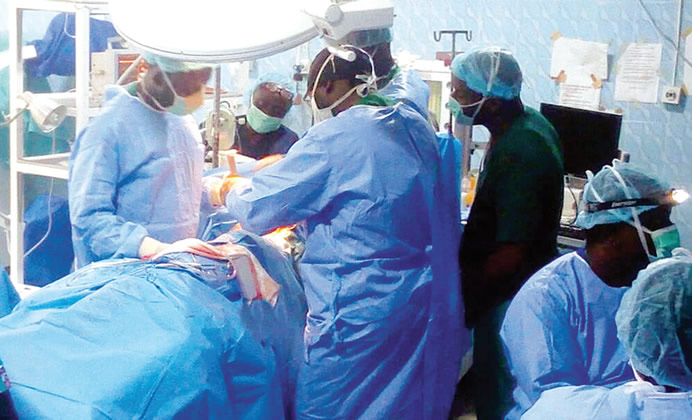
Ali Pate, the Coordinating Minister for Health and Social Welfare, revealed that over 16,000 Nigerian doctors have left the country in the past five to seven years, seeking improved opportunities abroad.
Pate made this statement in Abuja on Tuesday during the seventh annual capacity-building workshop organized by the Association of Medical Councils of Africa (AMCA).
The workshop focused on the theme “Integrated Healthcare Regulation and Leadership in Building Resilient Health Systems,” highlighting the importance of strengthening health systems in Africa through effective leadership and regulation.
In his address, Pate explained that the mass emigration of doctors has resulted in a concerning doctor-to-population ratio of just 3.9 per 10,000 people, far below the global average. He also pointed out that the cost of training a single doctor exceeds $21,000, underscoring the significant financial losses Nigeria incurs due to the migration of its healthcare professionals.
The Minister attributed the large-scale migration to a variety of factors, including better economic prospects, improved working conditions, and more favorable research opportunities available abroad. He further emphasized that this trend has not only strained the healthcare system but has also left many rural communities underserved and without adequate medical care.
“The mass departure of doctors from Nigeria has been alarming. Over 16,000 doctors are estimated to have left in the past five to seven years, with many more leaving in recent years. Additionally, we have seen a significant reduction in the number of nurses and midwives,” Pate said.
Despite the challenges posed by this migration, Pate expressed hope that the current administration under President Bola Tinubu would reassess and reform policies related to managing the health workforce, to the benefit of Nigeria’s healthcare system.
He highlighted President Tinubu’s vision for a prosperous and people-centered Nigeria, one that not only thrives internally but also fosters strong relationships with neighboring countries. Tinubu was appointed by African heads of state as the AU’s Continental Champion for Human Resources for Health and Community Health Delivery, a position that reflects his commitment to improving the continent’s health systems.
“We are charting a new direction under the leadership of President Tinubu. His vision is for Nigeria to become a prosperous, people-oriented country that contributes to the overall growth of the continent. It is not just about a standalone Nigeria, but one that is connected to its neighbors and the wider African community,” Pate stated.
He also introduced the government’s national policy on health workforce migration, which aims to address the issue while maintaining respect and dignity for both healthcare workers and the country. The policy is data-driven and evidence-based, aiming to strike a balance between allowing healthcare professionals to pursue opportunities abroad and safeguarding the integrity of Nigeria’s health system.
“This policy is not restrictive. We understand that the global health workforce shortage is a significant challenge, with an estimated 18 million health workers needed worldwide. Countries in the global north are also facing staffing crises due to demographic changes and other factors,” Pate explained.
He emphasized that the government’s response is guided by a sense of responsibility balancing the rights of health professionals to seek opportunities abroad with the country’s duty to maintain a sustainable and effective healthcare system.





